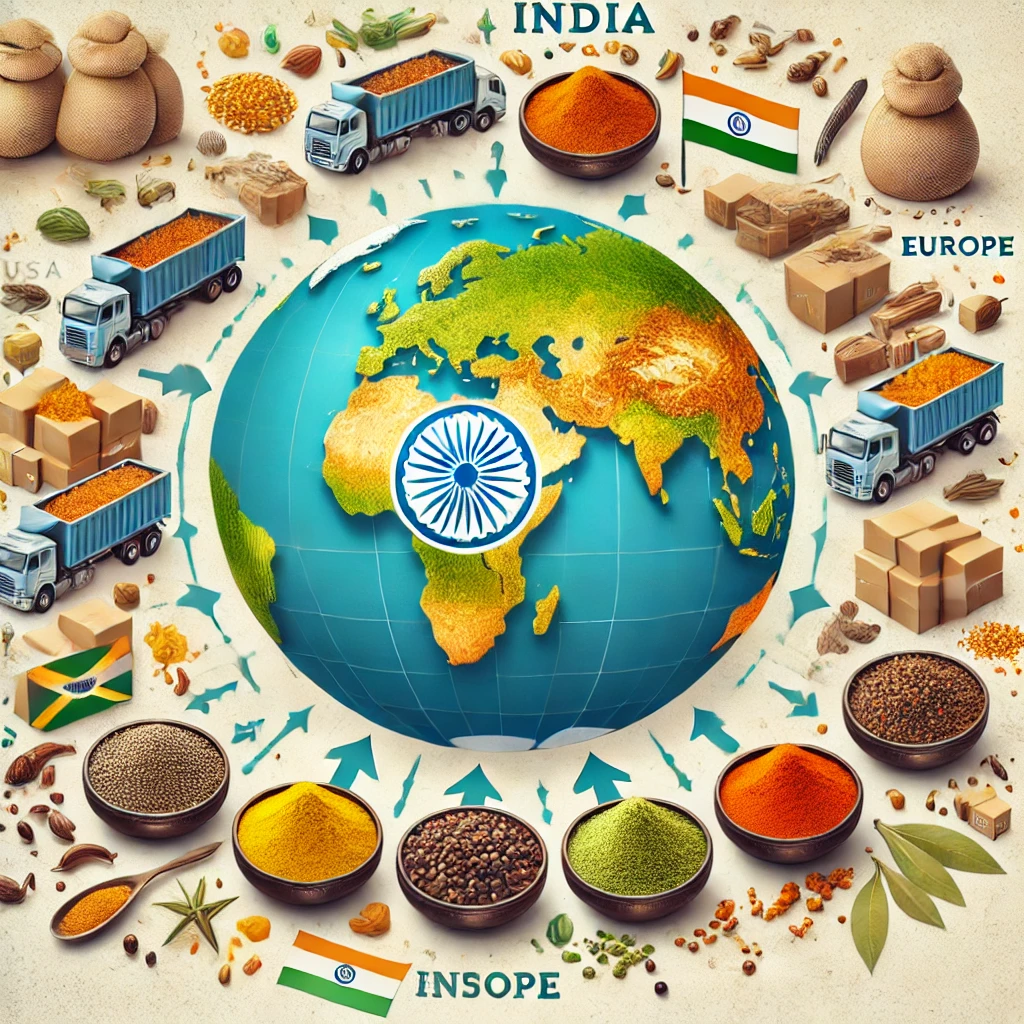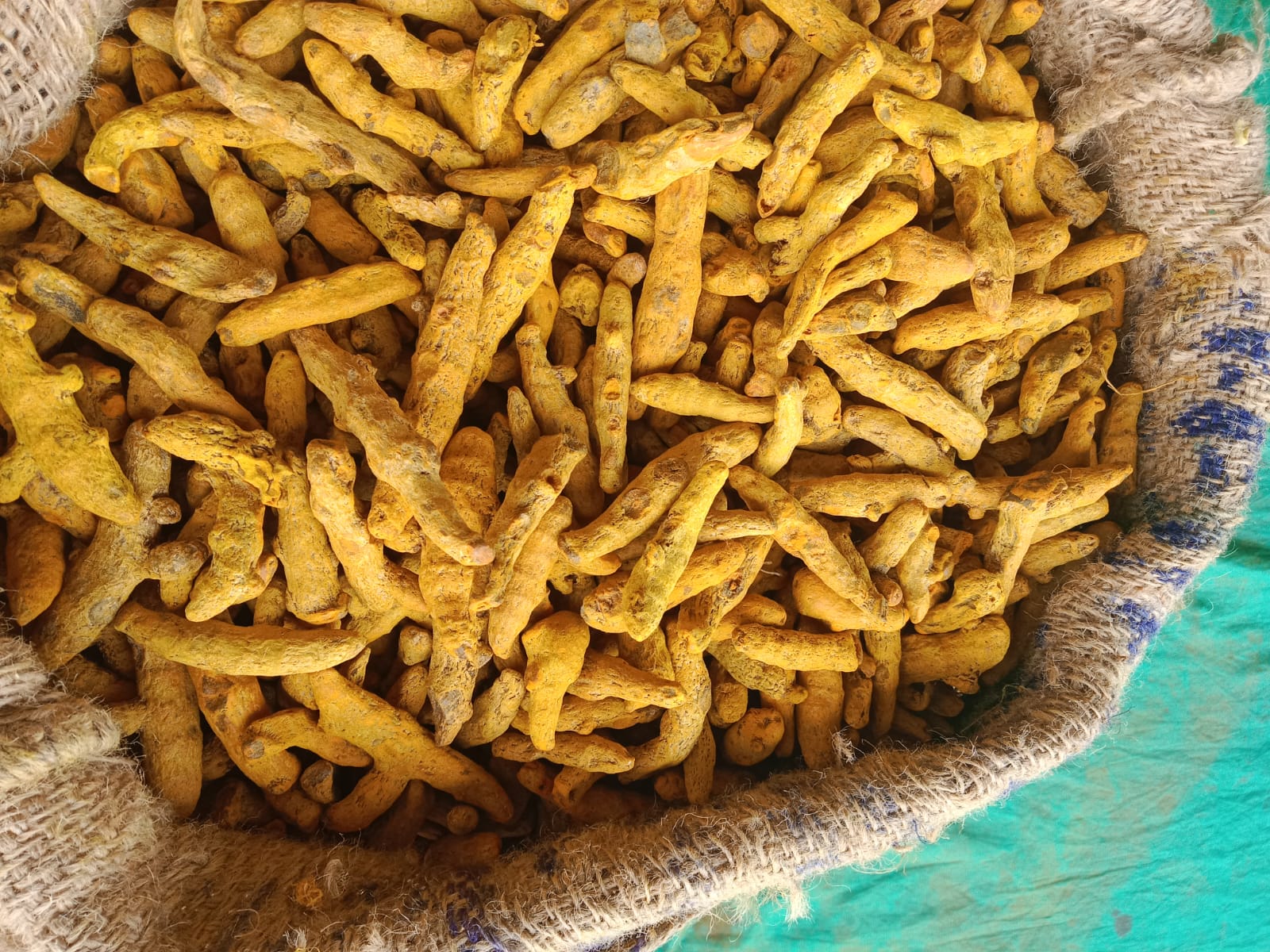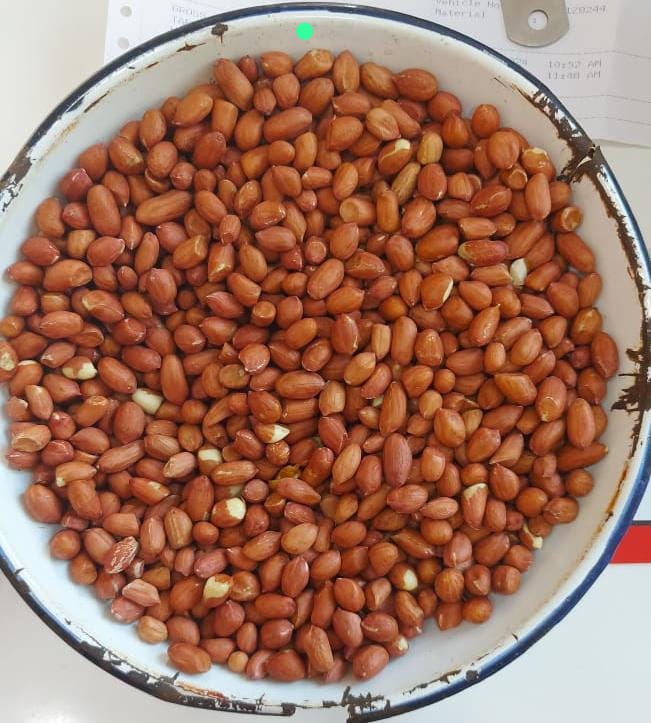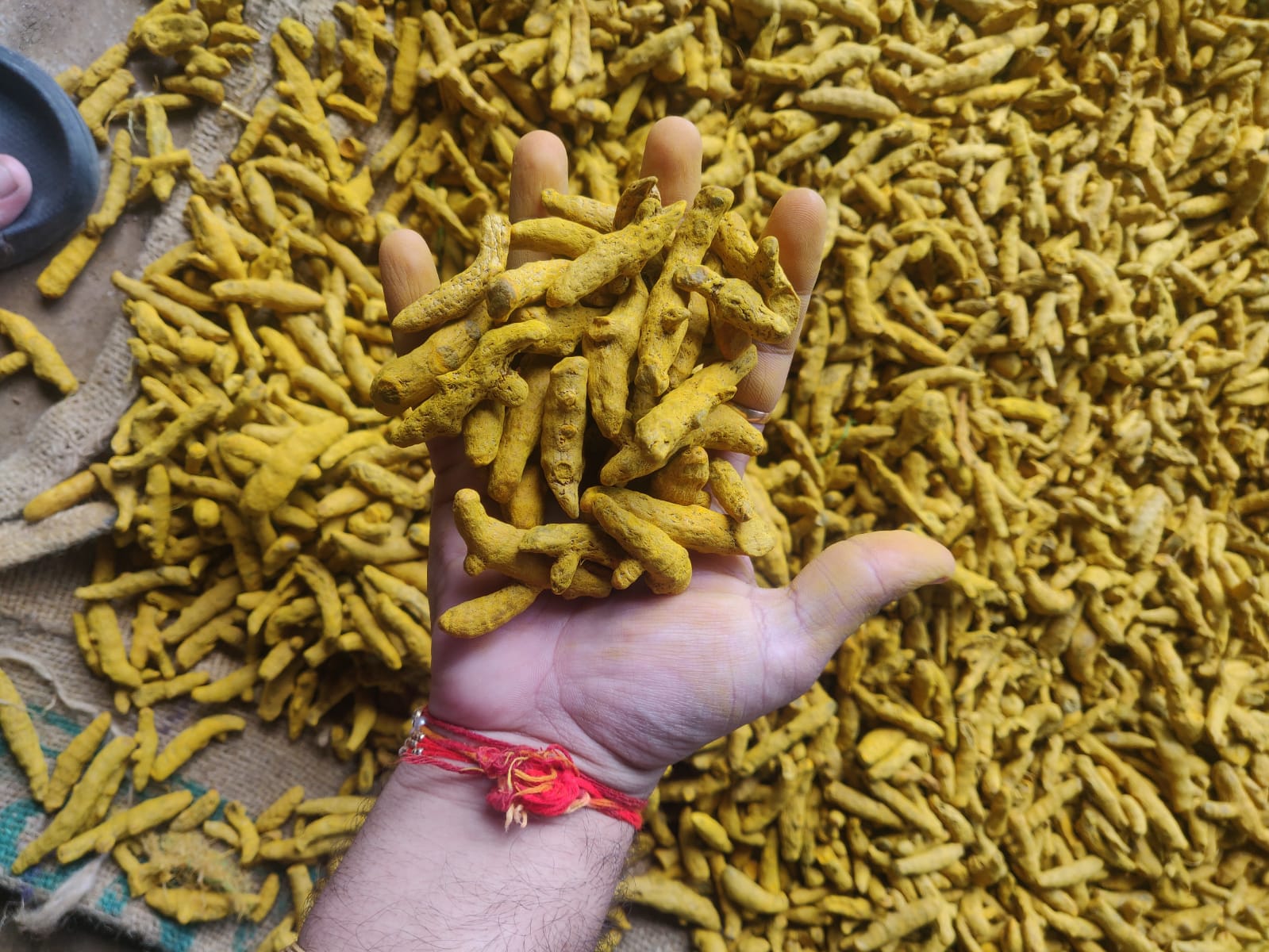The Global Demand for Indian Spices: A Flavorful Export Powerhouse (Masale))
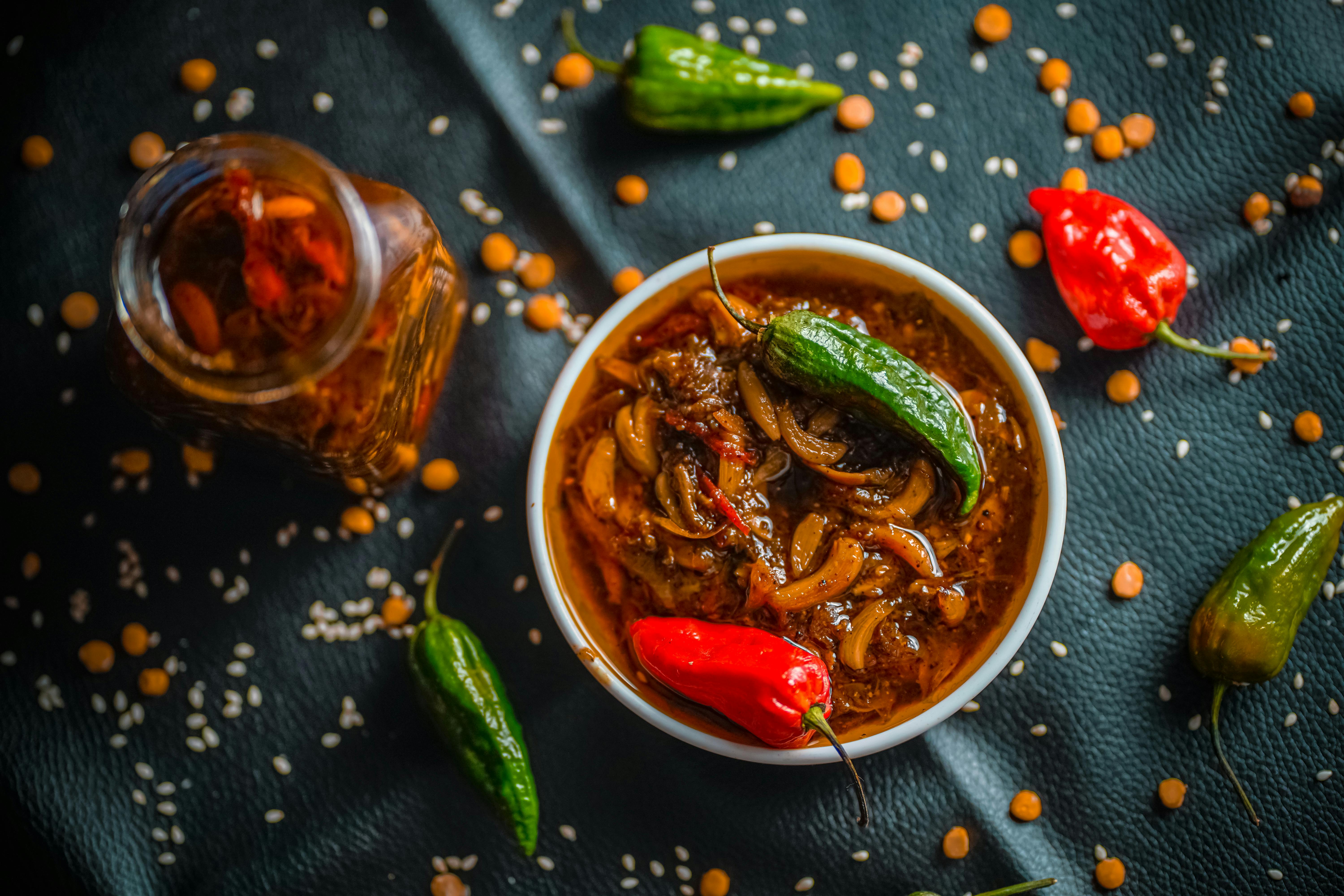
India has long been known as the "Land of Spices." The diverse climatic conditions across the country make it the ideal location for growing a wide variety of spices, known for their rich aroma, flavor, and medicinal properties. From pepper to cardamom, cumin to turmeric, Indian spices are renowned for their premium quality and have been cherished globally for centuries. The export of Indian spices plays a critical role in India's economy, contributing significantly to both the agricultural and trade sectors.
The Growing Global Demand for Indian Spices
The demand for Indian spices has witnessed tremendous growth in recent years, driven by global trends toward healthier eating, natural remedies, and the increasing popularity of Indian cuisine worldwide.
- 🌠Rising Popularity of Indian Cuisine: With the spread of Indian restaurants and fusion dishes globally, spices like cumin, coriander, and cardamom have found their way into many international kitchens.
- 🥠Health & Wellness Trends: Spices like turmeric, known for its anti-inflammatory properties, and ginger, which aids digestion, have become staples in health-conscious diets worldwide. Indian spices are now being used in supplements, teas, and wellness products.
- 📈 Demand in Processed Food Industry: The global food processing industry relies heavily on spices for flavor enhancement. Indian chili, pepper, and clove are integral to the manufacturing of sauces, snacks, and ready-to-eat meals.
- 🌱 Natural & Organic Products: The rising demand for organic spices has also contributed to India’s export growth. Consumers are seeking pure, chemical-free spices, and India has capitalized on this trend by producing a wide range of organic spice varieties.
Key Export Markets for Indian Spices
Indian spices are in high demand worldwide, with Asia, Europe, the United States, and the Middle East being the largest consumers. Here’s a closer look at some key markets:
- United States: The U.S. is one of the largest importers of Indian spices, particularly turmeric, black pepper, and cumin. The country's focus on health and wellness has bolstered the demand for Indian spices in supplements and superfoods.
- Europe: Countries like Germany, the U.K., and France import large volumes of Indian spices for use in food production, restaurants, and home kitchens. The European Union is a major importer of organic and natural products, making Indian organic spices highly sought after.
- Middle East: The Middle East has a deep-rooted culinary tradition that incorporates Indian spices, especially saffron, cardamom, and black pepper. The demand for Indian spices remains strong in the UAE, Saudi Arabia, and other Gulf countries.
- Asia-Pacific: In Japan, South Korea, and Southeast Asian nations, spices like turmeric and chili powder are used in health beverages and traditional medicine. India’s proximity to these markets ensures steady trade.
Characteristics and Production Regions of Popular Indian Spices
Indian spices are known for their distinctive characteristics that make them unique and irreplaceable in world markets. Here’s a closer look at some of the most popular spices, their features, and the regions where they are predominantly grown:
Turmeric
- 🌟 Color: Vibrant yellow or orange
- 🥠Uses: Known for its anti-inflammatory properties, turmeric is used extensively in the health and wellness industry. It also adds rich flavor to curries and sauces.
- 🌱 Curcumin Content: Indian turmeric, especially varieties from Nizamabad (Telangana) and Salem (Tamil Nadu), are prized for their high curcumin levels.
- 🌠Regions of Production: Andhra Pradesh, Maharashtra, Tamil Nadu, Odisha, and West Bengal.
Black Pepper
- ðŸŒ¶ï¸ Flavor: Strong, pungent, and slightly woody
- 🌠Global Demand: Known as the "King of Spices," black pepper is used across all cuisines worldwide. Indian pepper from Kerala is particularly well-known for its high piperine content.
- 🌱 Regions of Production: Kerala, Karnataka, and Tamil Nadu.
Cardamom
- 🌸 Aroma: Sweet, floral, and slightly pungent
- ðŸ½ï¸ Uses: Used in both sweet and savory dishes, Indian cardamom is highly valued in the food, beverage, and confectionery industries. Indian green cardamom is considered the best in the world.
- 🌱 Regions of Production: Kerala, Karnataka, and Tamil Nadu (Western Ghats region).
Cumin
- 🌾 Taste: Earthy, warm, and slightly bitter
- ðŸ›¢ï¸ Oil Content: Indian cumin is known for its high oil content, which imparts a more intense flavor. Cumin is a vital ingredient in spice blends like garam masala and curry powders.
- 🌱 Regions of Production: Rajasthan and Gujarat (Western India).
Clove
- 🌱 Strength: Known for its strong, sweet, and slightly bitter taste
- 🧴 Medicinal Uses: Clove oil is used in oral care products, and the spice itself is used for its antimicrobial properties in traditional medicine.
- 🌱 Regions of Production: Tamil Nadu, Kerala, and Karnataka.
Chili
- ðŸŒ¶ï¸ Heat Level: Known for its pungent and spicy flavor
- 🌠Global Demand: Indian chili is used in many spice blends and food products worldwide. Guntur Chili is one of the most famous varieties, known for its heat and color.
- 🌱 Regions of Production: Andhra Pradesh, Telangana, Karnataka, and Madhya Pradesh.
Key Factors Behind the Success of Indian Spice Exports
Several factors contribute to the global popularity and success of Indian spice exports:
- Rich Diversity: India is home to a diverse range of climates, which allows for the cultivation of a wide variety of spices, each with its unique aroma, flavor, and medicinal properties.
- Traditional Farming Practices: Many farmers in India still follow age-old cultivation methods, ensuring that spices retain their natural flavor and potency.
- High Quality & Stringent Standards: Indian spices adhere to strict quality standards, making them highly sought after in international markets. Many exporters, like Black Pearl Exim, ensure that their products meet the highest global food safety standards.
- Organic & Chemical-Free Farming: The increasing demand for organic spices is being met by Indian farmers who cultivate spices without the use of harmful chemicals, ensuring a pure product that is safe for consumers.
Black Pearl Exim: Your Trusted Partner for Premium Indian Spices
At Black Pearl Exim, we are committed to offering only the highest-quality spices that meet international standards. Our spices are sourced directly from trusted farmers and are subject to rigorous quality checks to ensure purity and flavor. We specialize in a wide range of Indian spices, including:
- ðŸŒ¶ï¸ Chili
- 🌾 Cumin
- 🌱 Turmeric
- 🌸 Cardamom
- 🌿 Black Pepper
- 🪴 Fenugreek
The export of Indian spices is a flourishing industry, driven by the ever-growing global demand for flavorful, aromatic, and health-boosting products. With an increasing emphasis on organic, natural, and pure products, Indian spices have positioned themselves as staples in households, restaurants, and health products around the world.
At Black Pearl Exim, we are proud to be part of this booming industry, providing premium-quality Indian spices to customers worldwide. If you’re looking to source the best Indian spices for your business, reach out to us today to explore our wide range of offerings and experience the rich flavors and aromas of Indian spices.

